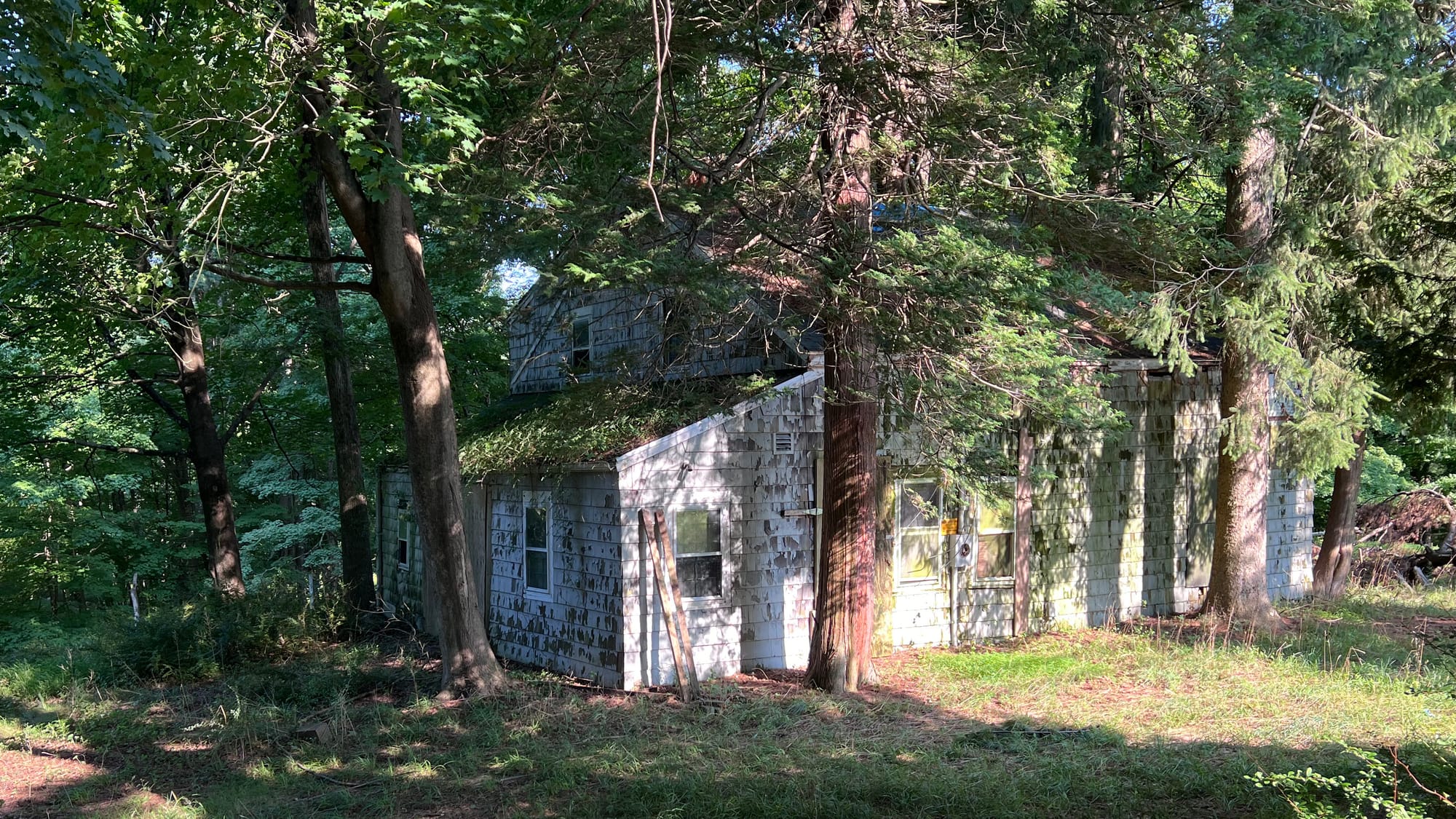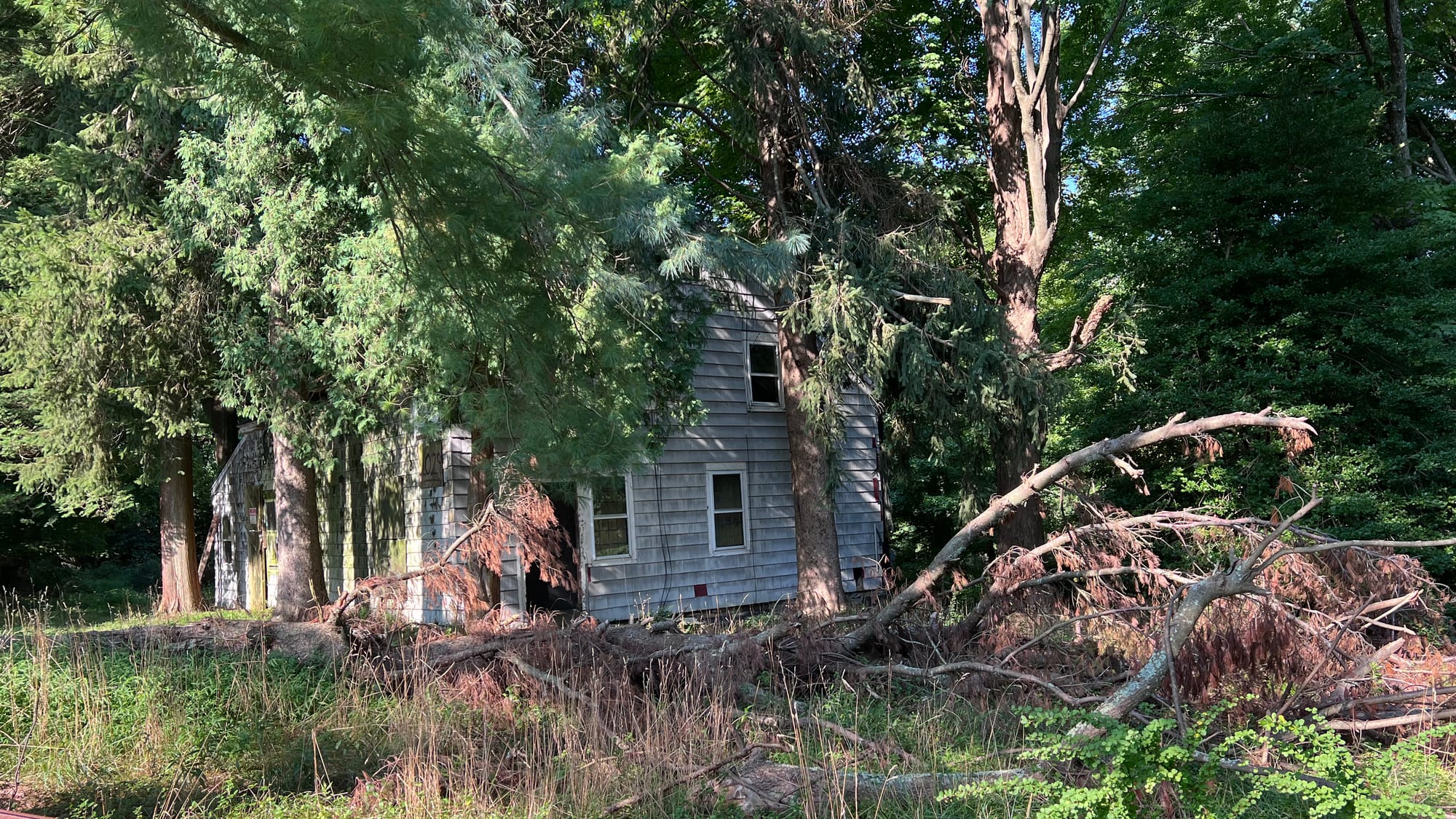Captain Isaac Johnson's farm
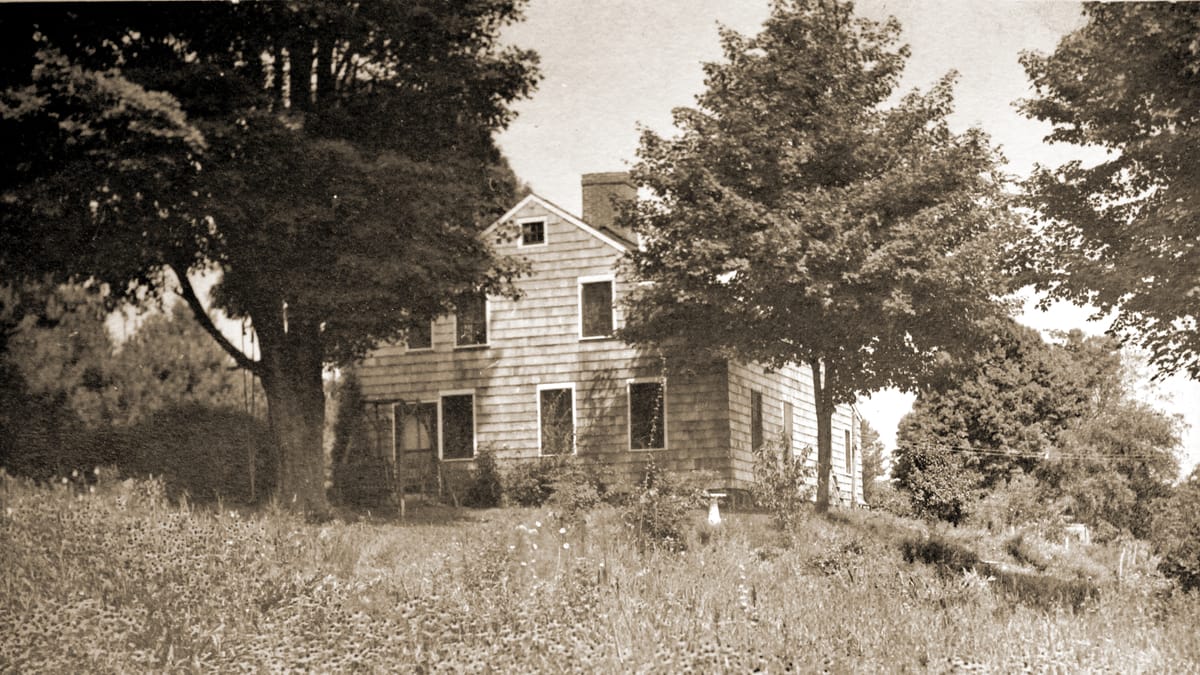
According to the book “History of New Haven” published in 1892, in the chapter on Early Woodbridge, one of the first European settlers who “occupies a prominent place in the history of Woodbridge” is Capt. Isaac Johnson (1672-1750):
“He seems to have been a leading mind in his time. He lived in the south part of the town near the Orange line on the farm now occupied by Mr. Nathan P. Peck. He was moderator of the first meeting called to organize the ecclesiastical society of Amity, and of almost all public meetings. He was sure to be put on all committees where questions of importance were to be considered, whether civil or ecclesiastical. He was the first captain of the military company and the first deacon elected in the church.”
The entry goes on to assert that this Isaac was an ancestor of President Andrew Johnson but there's no evidence connecting these families – and indeed, it was common at that time for various Johnson family connections to the president to be promoted, apparently based on conjecture. Meanwhile, another near-contemporary of the Isaac Johnson who lived in Woodbridge was the prominent Captain Isaac Johnson (1615-1675) who was killed in the Great Swamp Fight in Rhode Island during King Philip's War. But these two Isaac Johnsons are not related (although the author is related to them both).
The following is the inscription on Issac Johnson's tombstone at Eastside Cemetery:
"Here lies the body of Isaac Johnson the first Capt. and first Deacon in Amity. A guide to this infant society a zealous promoter of the worship of God. A benefactor and faithful servant to ye church. Where best known best loved, lived long, lived well, and died happy in the hope of the gospel."
Isaac was the fifth of 14 children (including a set of twins) of William 'Wingle' Johnson and Sarah Hall born between 1665 and 1688 in New Haven. Sarah had been born in New Haven and married Wingle in 1664. He had arrived in New Haven about 1660. It is said that Wingle had been orphaned at less than a year old and raised by his uncle Richard Johnson.
Isaac married Abigail Cooper in 1699 and the couple had ten children. They as well as several other Johnson families, likely all related, are thought to have lived in this area of what was then still part of New Haven Colony. By the mid-1700s, a grandson, Job Johnson, is said to be living and farming here about. He was a son of Isaac and Abigail's son David. The old house still standing at 1029 Johnson Road was owned by another grandson Obed Johnson, Jr. at the time the town boundaries were established in January 1784. His residence is mentioned by name in the Act incorporating the Town of Woodbridge:
“...South on the Line between New Haven Town and said Amity until it comes to Milford Line at the South West Corner of Obed Johnsons Farm..”
Later still, in the post-Civil War time period, the property is being farmed by Nathan Platt Peck (1843-1912) who is a first cousin, 6 times removed, of Isaac (through his brother Thomas Johnson, who is Nathan's 5th great-grandfather).
Nathan was active in Woodbridge politics and was a member of the Board of Selectmen. Here he is with his fellow Selectmen, about 1902:
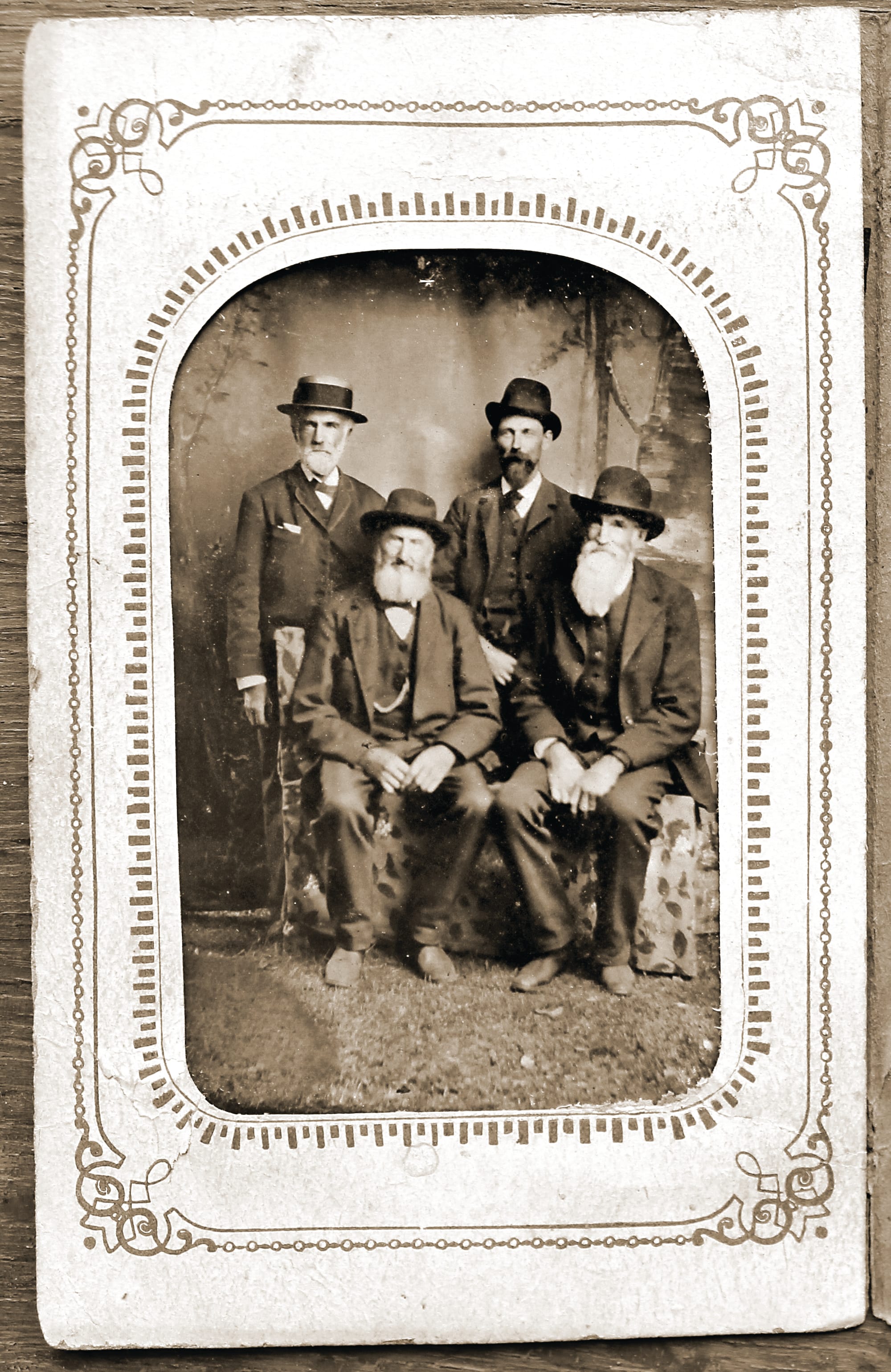
In 1866 Nathan married Julia Elimina Wheaton and the couple had at least three children, including daughter Clara Wheaton Peck (1867-1921). She married Herbert Hazen Tomlinson (1869-1939) who went on to serve as Woodbridge First Selectman from 1916 to 1919. By 1868, Nathan and Julia are living at the Johnson Road house according to the Beers map.
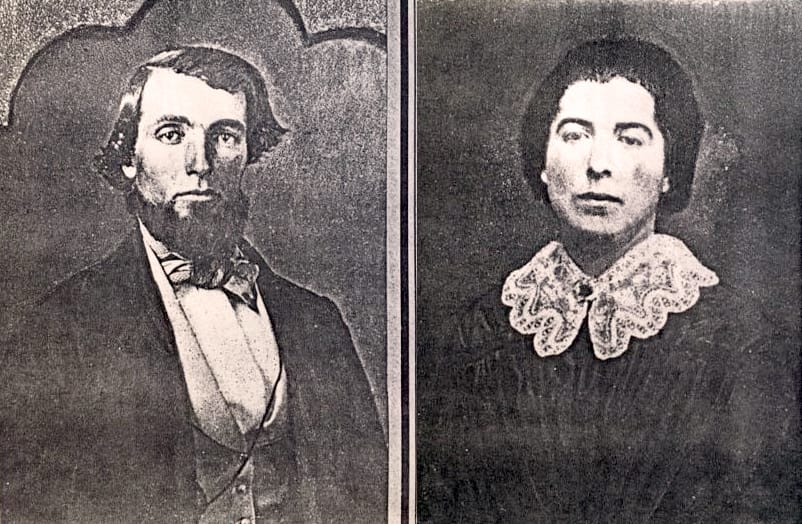
In a talk given by local historian and attorney Edward Luke Clark, Jr. (1860-1946) to a gathering of the Woodbridge Historical Society, Nathan and Julia are recalled by their former neighbor, Mr. Clark:
“Beginning at the Orange line on the Johnson Road the first house was that of Nathan P. Peck [bottom of steep pitch – first in Woodbridge]. He had a small farm, so could not afford to hire much help, and this kept him rather closely confined. I remember that one day at a gathering about the Woodbridge church, when it came late afternoon he remarked, "I shall have to go home to milk; all my life I have had to get home to milk." But when I think of the fine family of children he raised I feel that it paid to get home to milk.
Mr. Peck was a good neighbor and was often at my home. He dearly loved a joke, but I can think of a few instances in which his jokes resulted in very real loss. I think he did what many other New England boys have done, namely, married the local school teacher. I didn't know Mrs. Peck well, but I think she was a woman with education and refinement, and she helped her young neighbors with their lessons.”
Edward Clark also tells the Society about how the road that ran by Nathan and Julia's farm came to be. Here is the tale he relates:
“The Johnson [Road], in recent years so called, from the Sherman or Marks corner to the Orange Line is comparatively new. The old Dogburn Road formerly ran about three-eighths of a mile farther east, under the shadow of Job's Rock [near Maltby], close to the New Haven line. William Hotchkiss and my grandfather [Luke Clark 1789-1842] gave the land for the new section some time before my grandfather's death in 1842. But these men, in giving the road, were caught napping. In those days the state law required owners of land adjoining a highway to fence it, so the town turned back on them and required then to fence this land which they had given. My grandfather thought that was rubbing it in. The walls that he built are still standing. I cannot conceive of any advantage to these men from the new road, and the land given by my grandfather was excellent.”
The typewritten manuscript of Edward Clark's talk, delivered some time in perhaps the 1930s, is a fascinating look back on our town's history as it provides anecdotes relating to “certain of my Woodbridge neighbors who were living some seventy-five years ago, most of whom I personally knew.” In creating these brief vignettes, like the descriptions of Nathan and Julia Peck, Edward paints for us a colorful picture of how life was lived in this small community. Stand by for more, to be woven into future posts. In the meantime you can read the full transcript of this talk for yourself from this scanned copy (PDF part one and PDF part two).
Today, the parcel on Johnson Road has been sold by the Regional Water Authority for the purpose of historic preservation. Signs on the old farmhouse indicate that JA Construction, LLC — which specializes in Historical Renovation, Remodeling, and New Construction — is under contract to perform work here. What does the future hold in store for this old and historically significant dwelling place of Edward Clark's neighbors? We can only hope for better days ahead.
